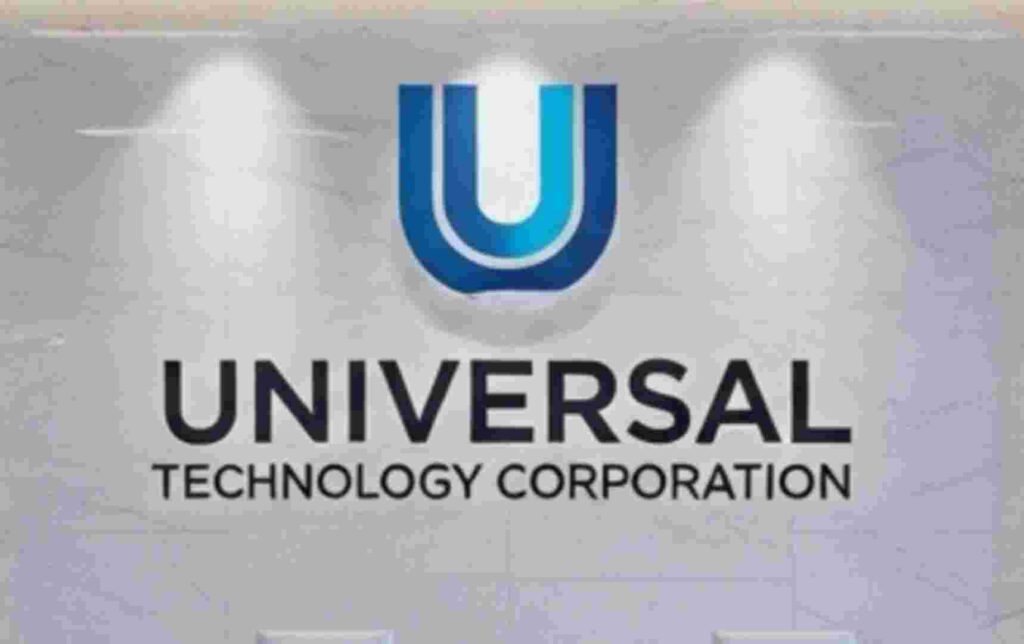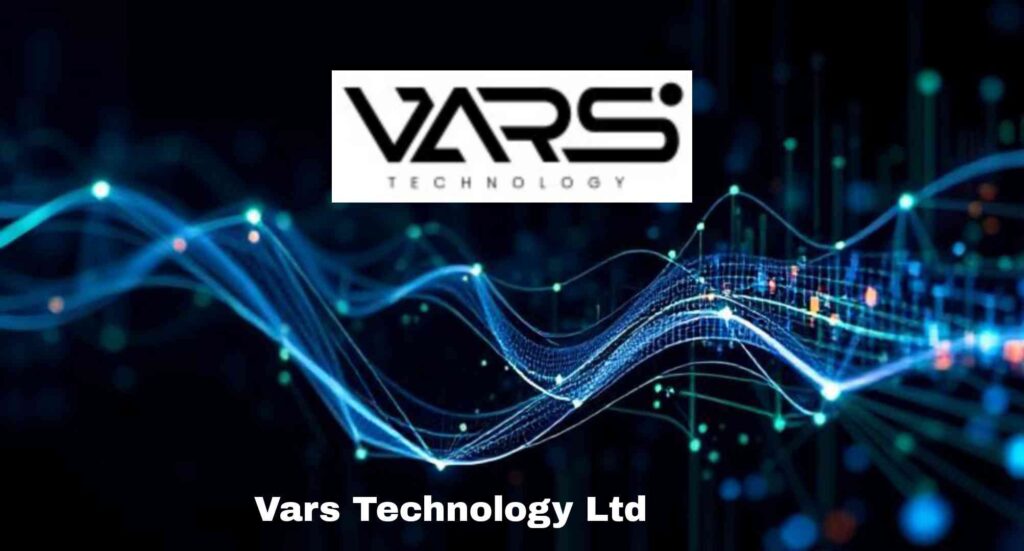In the ever-evolving world of defense contracting and aerospace innovation, few names carry the weight of Universal Technology Corporation (UTC). Known for its quiet precision and high-impact contributions, UTC isn’t a household name—but in the defense and aerospace sectors, it’s synonymous with trust, technical excellence, and pioneering research.
This article provides a comprehensive look at Universal Technology Corporation: its mission, operations, capabilities, impact, and the role it continues to play in shaping the defense landscape in 2025 and beyond.
What Is Universal Technology Corporation?
Universal Technology Corporation is a U.S.-based private defense contractor specializing in research, development, and engineering services primarily for the Department of Defense (DoD), particularly the U.S. Air Force. Headquartered in Dayton, Ohio—right near Wright-Patterson Air Force Base—UTC has spent over five decades aligning itself with national defense priorities, delivering advanced materials research, computational analysis, and aerospace systems expertise.
Founded: 1961
Headquarters: Dayton, Ohio
Core Clientele: U.S. Air Force, Department of Defense, various aerospace firms
Core Expertise: Advanced materials, aerospace structures, propulsion systems, additive manufacturing, and computational mechanics.
Their role isn’t just technical—it’s strategic. UTC serves as a conduit between scientific research and field-ready innovation.
A Quiet Giant with Strategic Impact
UTC operates largely in the background, often in collaboration with federal laboratories, universities, and major contractors. But don’t let the lack of headlines fool you—its contributions are foundational.
1. Supporting the Air Force Research Laboratory (AFRL)
Perhaps UTC’s most enduring relationship is with AFRL, where it supports mission-critical projects related to:
-
Aerospace structures and materials durability
-
Thermal protection systems
-
Hypersonic vehicle design
-
Aircraft sustainment technologies
These aren’t just buzzwords—they’re cornerstones of national defense strategies in 2025. As military priorities shift toward hypersonics and autonomous systems, UTC’s work becomes even more vital.
2. Bridging Academia and Industry
Universal Technology Corporation often acts as the connective tissue between groundbreaking university research and field implementation. Through government-funded programs and Small Business Innovation Research (SBIR) initiatives, UTC brings lab concepts to life, ensuring theoretical advances don’t gather dust in academic journals.
Core Competencies That Set UTC Apart
What makes Universal Technology Corporation a leader in its domain? It’s not size—UTC is a mid-sized contractor—but its breadth of capabilities and laser-focused subject matter expertise.
Advanced Materials and Composites
UTC specializes in developing and analyzing advanced composite materials used in modern aircraft and spacecraft. These include carbon fiber-reinforced polymers, ceramic matrix composites, and thermal barrier coatings.
-
Application: Hypersonic vehicles, stealth aircraft, and propulsion systems
-
Why it matters: These materials reduce weight, increase heat resistance, and improve stealth—all crucial for next-gen defense systems.
Structural Health Monitoring (SHM)
UTC has been instrumental in creating SHM systems that allow the real-time monitoring of aerospace vehicles and components.
-
Benefit: Predictive maintenance and lower lifecycle costs
-
Real-world use: U.S. Air Force aircraft sustainment programs in 2024–2025
Computational Modeling and Simulation
Their expertise in simulation tools (e.g., ANSYS, ABAQUS, and custom in-house software) allows for predictive modeling of material behavior under extreme conditions.
-
Use cases: Jet engine thermal fatigue, aerodynamic stress analysis, missile launch simulations
Major Contracts and Recent Projects (As of 2025)
UTC is not a massive corporation like Lockheed Martin or Raytheon, but its strategic partnerships are notable.
1. $46 Million AFRL Contract Extension (2023–2028)
In 2023, UTC secured a multi-year contract extension to support materials and structural research for the Air Force Research Laboratory. This extension solidified its role in:
-
Accelerated fatigue testing
-
Digital twin development for aircraft maintenance
-
Thermal protection analysis for reusable launch systems
2. Additive Manufacturing in Aerospace
UTC is spearheading innovative additive manufacturing (3D printing) processes for high-strength, lightweight components. These efforts align with the DoD’s push for on-demand, field-deployable part manufacturing.
-
Impact: Reduced aircraft downtime, lower logistics footprint, and faster prototyping
3. Role in the Hypersonics Race
UTC has been tapped to assist with simulation and materials integration for hypersonic vehicles, contributing to next-gen platforms being tested by the U.S. military. This work is especially relevant given the ongoing geopolitical tensions and the U.S.’s strategic focus on hypersonic deterrence.
Why UTC Matters in 2025
In today’s world of real-time threats, escalating cyber warfare, and rapidly advancing aerospace technologies, agility is everything. UTC’s agility, technical depth, and trusted relationships with government agencies make it a key player—even if it’s not one you see on the front page.
Human Capital: The Unsung Force
Unlike giant firms with thousands of employees, UTC’s strength lies in its talent density. Their engineers and scientists aren’t just experts—they’re often former military personnel, defense researchers, or PhDs with hands-on experience. This insider knowledge enables them to anticipate challenges that aren’t even on competitors’ radars.
Trusted Partnerships
UTC’s collaboration model—partnering with universities, government labs, and other contractors—means it never works in isolation. It builds solutions with feedback loops, ensuring every deliverable meets both lab-grade and battlefield standards.
Universal Technology Corporation vs. Other Contractors
| Feature/Aspect | Universal Technology Corporation | Lockheed Martin | Raytheon Technologies |
|---|---|---|---|
| Size (Employees) | ~200 | 114,000+ | 180,000+ |
| Core Focus | R&D, Materials, Aerospace Testing | Aerospace & Defense | Defense Tech & Comms |
| Primary Client | U.S. Air Force | DoD, NASA, Foreign | DoD, Homeland Security |
| Academic Collaborations | Extensive | Moderate | Moderate |
| Public Recognition | Low | High | High |
| Innovation-to-Deployment Speed | High | Moderate | Moderate |
Industry Trends UTC Is Shaping
In 2025, three key trends define aerospace and defense innovation—and UTC is knee-deep in all of them.
1. Hypersonics
With global powers racing to develop hypersonic missiles and defense systems, UTC’s work in thermal protection, stress testing, and simulation is pivotal.
2. Digital Twins & Predictive Maintenance
UTC’s SHM and data modeling tools are feeding the rise of “digital twins”—virtual replicas of physical aircraft components used for predictive analysis.
3. Rapid Prototyping via Additive Manufacturing
UTC’s innovations in 3D metal printing are helping the military shift from traditional manufacturing to fast, agile production cycles.
Real-World Use Cases and Impact
Case 1: F-35 Component Durability Modeling
UTC developed a fatigue life model that improved maintenance scheduling for composite components in the F-35 program. Result: Fewer part failures and a 10% increase in operational readiness.
Case 2: Hypersonic Nose Cone Simulation
Working with AFRL, UTC simulated thermal stress on hypersonic nose cones at Mach 8. This research directly influenced material selection for U.S. experimental hypersonic platforms.
Case 3: Aircraft Lifecycle Cost Reduction
By implementing digital twin tech for select Air Force cargo planes, UTC helped reduce annual maintenance costs by over $7 million across the fleet.
Final Thoughts: The Value of Quiet Excellence
Universal Technology Corporation exemplifies a rare blend of scientific rigor and practical implementation. In 2025, as defense technology becomes more sophisticated—and national threats more complex—UTC continues to prove that it’s not always the loudest voice that makes the biggest impact.
With a future rooted in hypersonics, intelligent aerospace systems, and high-performance materials, UTC is poised not just to adapt, but to lead. For agencies and industries looking for more than just a contractor—for those seeking a true innovation partner—Universal Technology Corporation is the name behind tomorrow’s defense breakthroughs.
Frequently Asked Questions (FAQs)
Q1: Is Universal Technology Corporation publicly traded?
No, UTC is a private company. It primarily contracts with government agencies and operates independently from public markets.
Q2: What kind of jobs does UTC typically offer?
UTC hires mechanical, aerospace, and materials engineers, along with data scientists, simulation experts, and technical program managers—often with security clearance requirements.
Q3: Does UTC only work with the U.S. government?
While the U.S. government, particularly the Air Force, is its main client, UTC occasionally partners with other defense contractors, universities, and research institutions.
Q4: Is Universal Technology Corporation the same as United Technologies (now part of Raytheon)?
No, they’re entirely separate entities. UTC is a small to mid-sized R&D-focused defense contractor, while United Technologies was a massive aerospace conglomerate now merged into Raytheon Technologies.
Q5: Can startups collaborate with UTC?
Yes, especially through SBIR and STTR programs. UTC frequently collaborates with smaller companies and academic researchers on cutting-edge projects.
Q6: Where is Universal Technology Corporation located?
Their headquarters is in Dayton, Ohio—strategically close to Wright-Patterson Air Force Base and AFRL.



